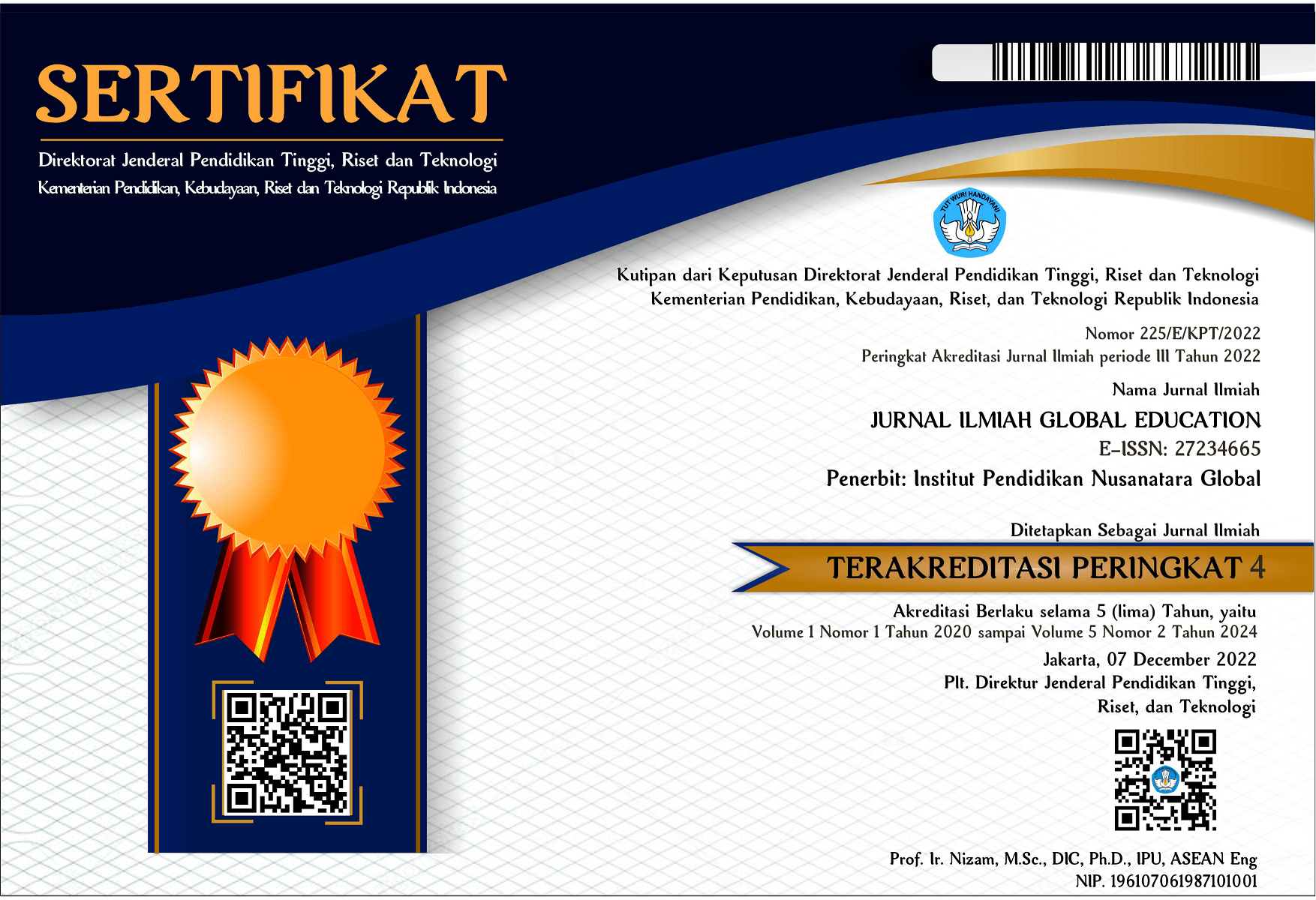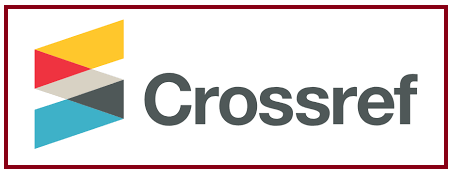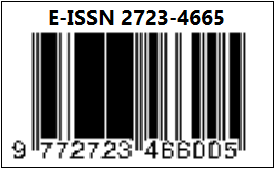Kajian Penerimaan Aplikasi IKD Dalam Meningkatkan Kualitas Layanan Dukcapil Pemalang: Upaya Menuju Transformasi Layanan
DOI:
https://doi.org/10.55681/jige.v5i2.2767Keywords:
Perceived usefulness, User Ease, Security, User interests, IKDAbstract
E-government was driven successfully due to government initiatives and acceptance of technology. This research aims to test whether perceived usefulness, ease of use, and security have a positive relationship with user interest in Digital Population Identity (IKD) in Pemalang Regency. The quantitative method is the method used in this research with a sample of 100 people who use Digital Population Identity (IKD). The results obtained from this research show that there is a very strong positive and significant relationship between perceived usefulness, user-friendliness, and security on user interest in IKD. Results were obtained with a significance level of 0.05, namely, r calculated 0.951 > r table 0.195. Apart from that, obtaining a sig value of 0.000 < 0.05 indicates that the alternative hypothesis (Ha) is accepted so that the null hypothesis (Ho) is rejected. This means that the degree of relationship between the variables of perceived usefulness, user convenience, and security on user interest is a very strong correlation category.
Downloads
References
Abasilim, U.D. and Edet, L.I. (2015). E-Governance and its implementation challenges in the Nigerian public services. ACTA UNIVERSITATIS DANUBIUS, 7(1), 30–42.
Cahyadi, A. (2016). PENERAPAN GOOD GOVERNANCE DALAM PELAYANAN PUBLIK (Studi Tentang Kualitas Pelayanan Elektronik Kartu Tanda Penduduk Berbasis Good) Governance Di Kecamatan Sukolilo Surabaya). JPAP: Jurnal Penelitian Administrasi Publik, 2(02). https://doi.org/10.30996/jpap.v2i02.1004
Cheong, J. H., & Park, M. C. (2005). Mobile internet acceptance in Korea. Internet research, 15(2), 125-140.
Chuttur M.Y. (2009). Overview of the Technology Acceptance Model: Origins, Developments and Future Directions. Indiana University, USA. Sprouts: Working Papers on Information Systems, 9(37). http://sprouts.aisnet.org/9-37
Davis, F. D. (1989). Perceived Usefulness, Perceived Ease of Use, and User Acceptance of Information Technology. MIS Quarterly, 13(3), 319–340. https://doi.org/10.2307/249008
Flavián, C., & Guinalíu, M. (2006). Consumer trust, perceived security and privacy policy: three basic elements of loyalty to a web site. Industrial management & data Systems, 106(5), 601-620.
Husin, M. H., Loghmani, N., & Zainal Abidin, S. S. (2017). Increasing e-government adoption in Malaysia: MyEG case study. Journal of Systems and Information Technology, 19(3–4), 202–227. https://doi.org/10.1108/JSIT-01-2017-0007
Jogiyanto, H. M. (2007). Sistem informasi keperilakuan. Yogyakarta: Andi Offset.
Kumala, D. C., Pranata, J. W., & Thio, S. (2020). Pengaruh perceived usefulness, perceived ease of use, trust, dan security terhadap minat penggunaan gopay pada generasi x di surabaya. Jurnal Manajemen Perhotelan, 6(1), 19-29.
Maharani, S. A., & Sundari, E. (2024). Pengaruh Perceived Usefulness, Perceived Ease of Use, Trust dan Security terhadap Behavioral Intention to Use BRI Mobile (Studi Kasus: pada Pengguna BRImo di Kota Pekanbaru). Al Qalam: Jurnal Ilmiah Keagamaan dan Kemasyarakatan, 18(1), 161-176.
Naufaldi, I., & Tjokrosaputro, M. (2020). Pengaruh perceived ease of use, perceived usefulness, dan trust terhadap intention to use. Jurnal Manajerial Dan Kewirausahaan, 2(3), 715-722.
Nugraha, J. T., Achmad, T., Warsono, H., & Yuniningsih, T. (2022). Understanding information technology culture in digital-based public services. Journal of Governance & Regulation, 11(2), 62–79. https://doi.org/10.22495/jgrv11i2art6
Ojo, J.S. (2014). E-governance: an imperative for sustainable grass root development in Nigeria. Journal of Public Administration and Policy Research, 6(4), 77–89.
Pratiwi, E., & Muslihudin, M. (2018). Implementasi e-goverment sebagai upaya peningkatan potensi desa di desa bumirejo menggunakan web mobile. Jurnal TAM (Technology Acceptance Model), 9(1), 22-29.
Rahmawati, R. N., & Narsa, I. M. (2019). Intention to use e-learning: aplikasi Technology Acceptance Model (TAM). Owner: Riset Dan Jurnal Akuntansi, 3(2), 260-269.
Rehman, M., Esichaikul, V. and Kamal, M. (2011). Factors influencing E-government adoption in Pakistan. Transforming Government: People, Process and Policy, 6(3), 258–282.
Saputri, A. F. (2015). Pengaruh Keamanan, Kemudahan, dan Resiko Kinerja Terhadap Kepuasan Pembelian Secara Online di Tokopedia.Com. Skripsi Jurusan Manajemen Fakultas Ekonomi Universitas Negeri Yogyakarta.
Sinaga, O. S., Marpaung, F. K., Dewi, R. S., & Sudirman, A. (2021). Kontribusi perceived usefulness, perceived ease of use dan perceived security terhadap behavioral intention to use aplikasi JAKET. Insight Management Journal, 1(3), 86-94.
Sugiyono, (2017). Metode Penelitian Kuantitatif, Kualitatif, dan R&D. Bandung: CV. Alfabeta.
Venkatesh, V., Morris, M. G., Davis, G. B., & Davis, F. D. (2003). User Acceptance of Information Technology: Toward a Unified View. MIS Quarterly, 27(3), 425–478. https://doi.org/10.2307/30036540
Waluyaningtyas, D. P., & Laksana, D. H. (2023). Pengaruh Perceived Ease Of Use, Perceived Usefulness, Security, Dan Trust Terhadap Intention To Use Aplikasi Access By Kai (Survei pada Mahasiswa di Daerah Istimewa Yogyakarta). Innovative: Journal Of Social Science Research, 3(6), 9970-9981.
Zeithaml, V. A., Parasuraman, A., & Malhotra, A. (2000). A conceptual framework for understanding e-service quality: implications for future research and managerial practice (Vol. 115). Cambridge, MA: Marketing Science Institute.
Downloads
Published
How to Cite
Issue
Section
License
Copyright (c) 2024 Dias Annisaa Pangesti, Joko Tri Nugraha, Suci Iriani Sinuraya, Ghaziah Nurika Akhni

This work is licensed under a Creative Commons Attribution-ShareAlike 4.0 International License.













